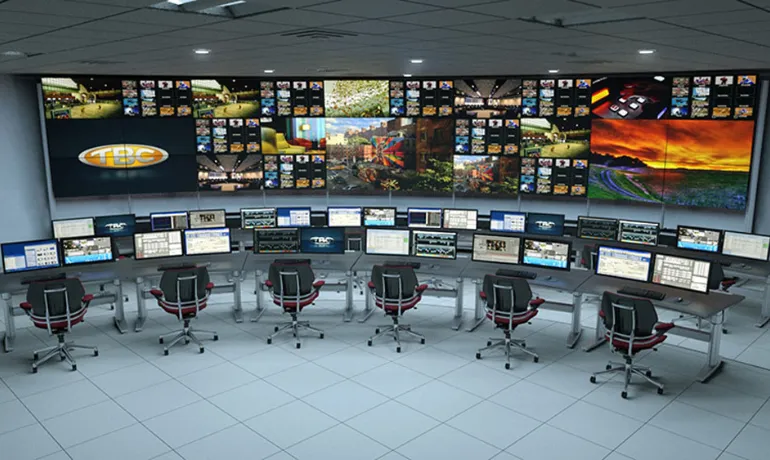As the UAE continues its ambitious journey towards sustainability, the role of control rooms has become increasingly pivotal. These centralized operations are not just for managing critical infrastructure; they are essential in monitoring environmental factors that influence the country’s sustainability goals. This blog explores how control rooms contribute to environmental monitoring, focusing on air quality, water resources, and renewable energy.
Centralized Environmental Monitoring
Control rooms serve as the nerve center for various environmental monitoring initiatives:
– Data Integration: Control rooms collect and analyze data from multiple sources, including sensors, satellites, and monitoring stations, providing a comprehensive view of environmental conditions.
– Real-Time Reporting: They enable real-time reporting on environmental factors, allowing for immediate responses to any anomalies or challenges.
– Collaboration Across Agencies: Control rooms facilitate coordination among different government agencies and organizations, ensuring a unified approach to environmental management.
Monitoring Air Quality
Air quality is a significant concern for urban environments, and control rooms play a crucial role in its management:
– Continuous Surveillance: Control rooms monitor air quality indicators, such as particulate matter (PM), nitrogen dioxide (NO2), and sulfur dioxide (SO2), using advanced sensors deployed throughout urban areas.
– Data Analysis and Reporting: By analyzing air quality data, control rooms can provide timely alerts to the public and policymakers, informing them of pollution levels and health advisories.
– Actionable Insights: Insights gathered from air quality data help city planners implement measures to reduce emissions, such as optimizing traffic flow and regulating industrial activities.
Water Resource Management
In a region where water scarcity is a pressing issue, control rooms are vital for effective water resource management:
– Water Quality Monitoring: Control rooms track water quality in real time, analyzing parameters like pH, turbidity, and contaminant levels to ensure safe drinking water.
– Irrigation Management: They help optimize water usage in agriculture by monitoring soil moisture levels and weather conditions, contributing to more sustainable farming practices.
– Emergency Response: In case of contamination or other water-related crises, control rooms coordinate immediate responses to mitigate impacts and safeguard public health.
Promoting Renewable Energy
The UAE is committed to transitioning towards renewable energy sources, and control rooms are at the forefront of this effort:
– Energy Management Systems: Control rooms oversee the operation of renewable energy facilities, such as solar and wind farms, ensuring efficient energy production and distribution.
– Grid Stability Monitoring: They monitor the integration of renewable energy into the national grid, managing fluctuations and maintaining stability to meet demand.
– Data-Driven Policy Making: Insights from energy monitoring can inform government policies and initiatives aimed at increasing the share of renewables in the energy mix.
Supporting Sustainability Goals
Control rooms are instrumental in supporting the UAE’s broader sustainability goals:
– Policy Implementation: By providing accurate and timely data, control rooms support the implementation of environmental policies aimed at reducing carbon footprints and promoting sustainable practices.
– Public Awareness Campaigns: Control rooms can disseminate information to the public about environmental initiatives and encourage community involvement in sustainability efforts.
– Research and Development: The data collected by control rooms can be used for research purposes, driving innovations in technology and methods for environmental protection.
Conclusion
Control rooms are essential in the UAE’s quest for sustainability, playing a vital role in monitoring environmental factors such as air quality, water resources, and renewable energy. By centralizing data collection and analysis, they provide the insights needed for informed decision-making and effective policy implementation. As the UAE continues to embrace innovative technologies and practices, control rooms will remain key players in achieving the country’s ambitious sustainability goals.

